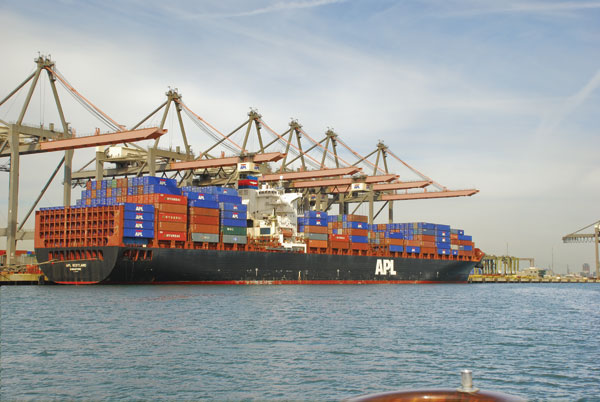Are beef exports the winner or victim in international politics?
International trade is, at its core, a political animal.
September 24, 2020

While we concentrate on COVID-19 effects, cattle markets and weather, international politics could affect our export potential. That includes events in Japan, South Korea, the U.K., Canada and China.
First, Japan and South Korea
Japanese Prime Minister Shinzo Abe, the key partner with President Trump in getting the momentous U.S.-Japan trade agreement, has been forced to resign. Intestinal problems that he has fought for some years finally made him unable to continue as prime minister. His party had to pick between his second in command and another protégé for party leader. Because the party has a big majority, whoever they selected was bound to become prime minister.
The party picked the man who had served as Abe’s right-hand man, Yoshihide Suga. He was believed to hold many of the same views as Abe and once he was selected, he made it very plain that he would continue Abe’s policies of opening Japan’s economy and close alliance with the U.S. Abe’s eight-year tenure has done more to get Japan’s economy reinvigorated than any Japanese administration in decades.
Not a diplomat by experience, Suga will have to tread carefully, as Japan’s biggest trading partner is China, while U.S.-China relations remain fraught with tension. There are two schools of thought in Japan, one favoring concentration on close ties with the U.S., another more concerned with ties to Japan’s number one trading partner, China.
It’s been suggested that Suga could do the most good by forswearing any new sales tax increases. Japan has instituted increases in 1997, 2014 and 2019, each time hammering economic growth. Suga had been Abe’s point man on privatizing some industries, significant government spending, encouraging more trade and getting more foreign labor
South Korea is imposing very strict conditions on anyone coming into their country, as well as stricter conditions in higher populated cities, putting new coronavirus cases on a downward trend. The economy is gradually recovering, although exports continue to lag behind last year’s figures. Improving demand from the U.S. and China is helping.
Tensions across the pond
Meanwhile, U.K.-EU trade negotiations are not going smoothly. As has been the case all along, the problem is how to handle Northern Ireland, which is part of the U.K. and not in the EU, and the Republic of Ireland, which is a part of the EU.
How to handle goods going into Northern Ireland from Britain has been a problem, as the “divorce” agreement specified that incoming goods from Britain would be treated as if Northern Ireland were still in the EU, having to meet EU standards and be subject to EU business subsidy rules
But Britain’s lawyers have raised the fear that if a business ships goods into Northern Ireland that are then shipped to the EU, those firms could possibly be considered subject to EU subsidy rules. There are also some questions about movement of food products into Northern Ireland, which understandably makes for a big political issue.
The British government has proposed overriding those parts of the divorce agreement and the EU is threatening to pull out of talks, start legal proceedings or exact financial penalties from the U.K. The EU and Britain are supposed to complete details of a trade agreement to follow up the Brexit deal by the end of the year, although an agreement is supposedly necessary sometime in October to allow time for all approvals.
If the two parties don’t get a trade agreement hammered out and Britain leaves the EU without a trade deal, all kinds of tariffs and trade barriers would then apply to Britain as a non-member of the EU. The specter of tariff costs and long lines at custom inspection points on half of its current trade is not something most Britons want to se
British politicians are angry and divided over the turn of events. We suspect Prime Minister Boris Johnson might be running a negotiating ploy, but no one knows for sure. Like happens here, opponents are accusing Johnson of either flip flopping or being off his rocker.
As far as our neighbors to the North go, Canada was disturbed in August when the U.S. again proposed aluminum tariffs on imports, at a 10% rate. Just two days before Canada was set to announce retaliatory tariffs, the Administration called it off. Consultation between U.S. and Canadian officials had determined that a surge in imports was short term and would level off later in the year.
Then there’s China
A major question in world affairs is whether trade will be considered on a separate track from political and military friction between the U.S. and China. China has been purchasing large amounts of grain and pork from the U.S. in recent weeks. Its economy is recovering faster than some expected and on an earlier track than Europe and other countries.
But crackdowns in Hong Kong, world objections to treatment of some Chinese citizens in re-education camps and saber rattling over closer U.S.-Taiwanese relations are not making anyone comfortable. The Chinese government, partially on purpose and partially being true to form, has been reminding the world that they are the Chinese Communist government and they operate by different rules
China’s food needs have to favor America’s agriculture. China’s pig herd is reported to still be 20 percent under 2017 levels. The government has told banks to begin accepting pigs, land-use rights and farm machinery as collateral in order to help the country’s 26 million small pig farmers stay in production.
That’s evidently a new concept for China’s banks but with most of the banks state-owned, some have followed directions. Small producers are one third of China’s pig producers. Chinese farmers do not own their land (“China Allows Pigs as Collateral,” Wall Street Journal, 09/14/20).
With government guarantees, bigger operators have been able to expand previous loan amounts several times and get lower interest rates. Pledged pigs are monitored by the local animal husbandry department. It remains to be seen how many hogs this ends up covering, as the minimums seem to be 500 hogs. From the international perspective, contrary to U.S. customs, the whole concept of lending against livestock seems quite novel to other countries
In China’s overall economy, factory production, retail sales, investment and property activity have now gotten back on track. GDP in the second quarter beat last year’s figure and demand for its exports has grown.
Domestic consumption, however, has lagged expectations. Government unemployment figures are less than 6%. If the trend in August continues through the end of the quarter, observers say the third quarter could best the second’s 3.2% rate
With restrictions relaxed, malls and restaurants returned to normal crowds in August, as except for localized outbreaks, no new cases have been reported for weeks. Travel has mostly been domesti
Steve Dittmer is a longtime beef industry commentator and executive vice president of the Agribusiness Freedom Foundation. The opinions of the author are not necessarily those of beefmagazine.com or Farm Progress.
About the Author(s)
You May Also Like




.png?width=300&auto=webp&quality=80&disable=upscale)
